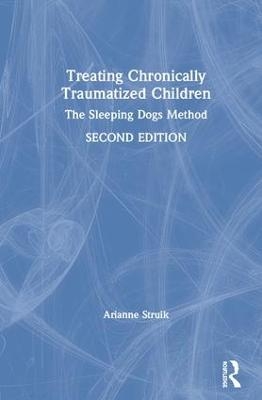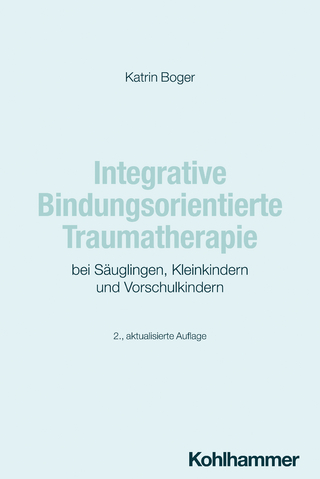
Treating Chronically Traumatized Children
Routledge (Verlag)
978-0-367-07614-6 (ISBN)
When children refuse or seem unable to talk about their traumatic memories, it might be tempting to ‘let sleeping dogs lie’. However, if left untreated, the memories of childhood abuse and neglect can have a devastating effect on the development of children and young people. How can these children be motivated and engage in trauma-focused therapy? Treating Chronically Traumatized Children: The Sleeping Dogs Method describes a structured method to overcome resistance and enable children to wake these sleeping dogs safely, so these children heal from their trauma.
The ‘Sleeping Dogs method’ is a comprehensive approach to treating chronically traumatized children, first preparing the child to such an extent that he or she can engage in therapy to process traumatic memories, then by the trauma processing and integration phase. Collaboration with the child’s network, the child’s biological family including the abuser-parent and child protection services, are key elements of the 'Sleeping Dogs method'. The underlying theory about the consequences of traumatization, such as disturbed attachment and dissociation, is described in a comprehensive, easy-to-read manner illustrated with case studies and is accompanied by downloadable worksheets. This new edition has been updated to include the clinical experience in working with this method and the most recent literature and research, as well as entirely new chapters that apply the ‘Sleeping Dogs method’ to the experiences of children in foster care and residential care, and those with an intellectual disability.
Treating Chronically Traumatized Children will have a wide appeal, including psychologists, psychiatrists, psychotherapists, counsellors, family therapists, social workers, child protection, frontline, foster care and youth workers, inpatient and residential staff and (foster or adoptive) parents.
Arianne Struik is a clinical psychologist, family therapist and EMDR consultant, director of The Institute for Chronically Traumatized Children (ICTC) in Australia. She provides specialized trauma treatment and teaches internationally on the treatment of trauma and dissociation in children. She is a member of the European Society for Trauma and Dissociation
Preface Introduction Chapter 1. What is the impact of traumatization in children? Chapter 2. Why children become avoidant and resistant? Chapter 3. What is needed to overcome resistance? Chapter 4. The Sleeping Dogs method Chapter 5. Psychoeducation to increase motivation Chapter 6. Interventions to overcome barrier 1: Safety Chapter 7. Interventions to overcome barrier 2: Daily Life Chapter 8. Interventions to overcome barrier 3: Attachment Chapter 9. Interventions to overcome barrier 4: Emotion Regulation Chapter 10. Interventions to overcome barrier 5: Cognitive Shift Chapter 11. The Motivation and Nutshell Check Chapter 12. Trauma Processing and Integration Chapter 13. Children in out of home care Chapter 14. Specific target groups Chapter 15. Planning and the treatment process
| Erscheinungsdatum | 04.06.2019 |
|---|---|
| Zusatzinfo | 26 Tables, black and white; 45 Halftones, black and white |
| Verlagsort | London |
| Sprache | englisch |
| Maße | 156 x 234 mm |
| Gewicht | 453 g |
| Themenwelt | Geisteswissenschaften ► Psychologie ► Familien- / Systemische Therapie |
| Medizin / Pharmazie ► Medizinische Fachgebiete ► Psychiatrie / Psychotherapie | |
| Sozialwissenschaften ► Pädagogik ► Sozialpädagogik | |
| Sozialwissenschaften ► Soziologie | |
| ISBN-10 | 0-367-07614-4 / 0367076144 |
| ISBN-13 | 978-0-367-07614-6 / 9780367076146 |
| Zustand | Neuware |
| Haben Sie eine Frage zum Produkt? |
aus dem Bereich


